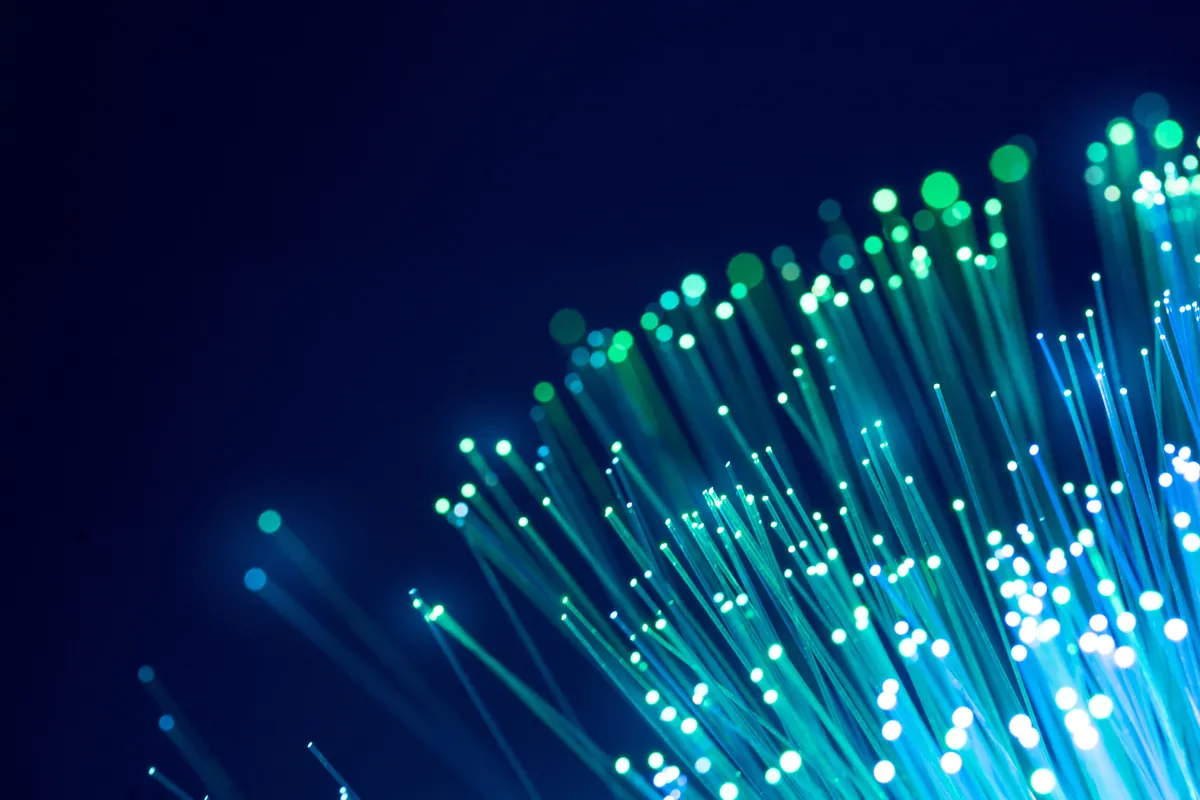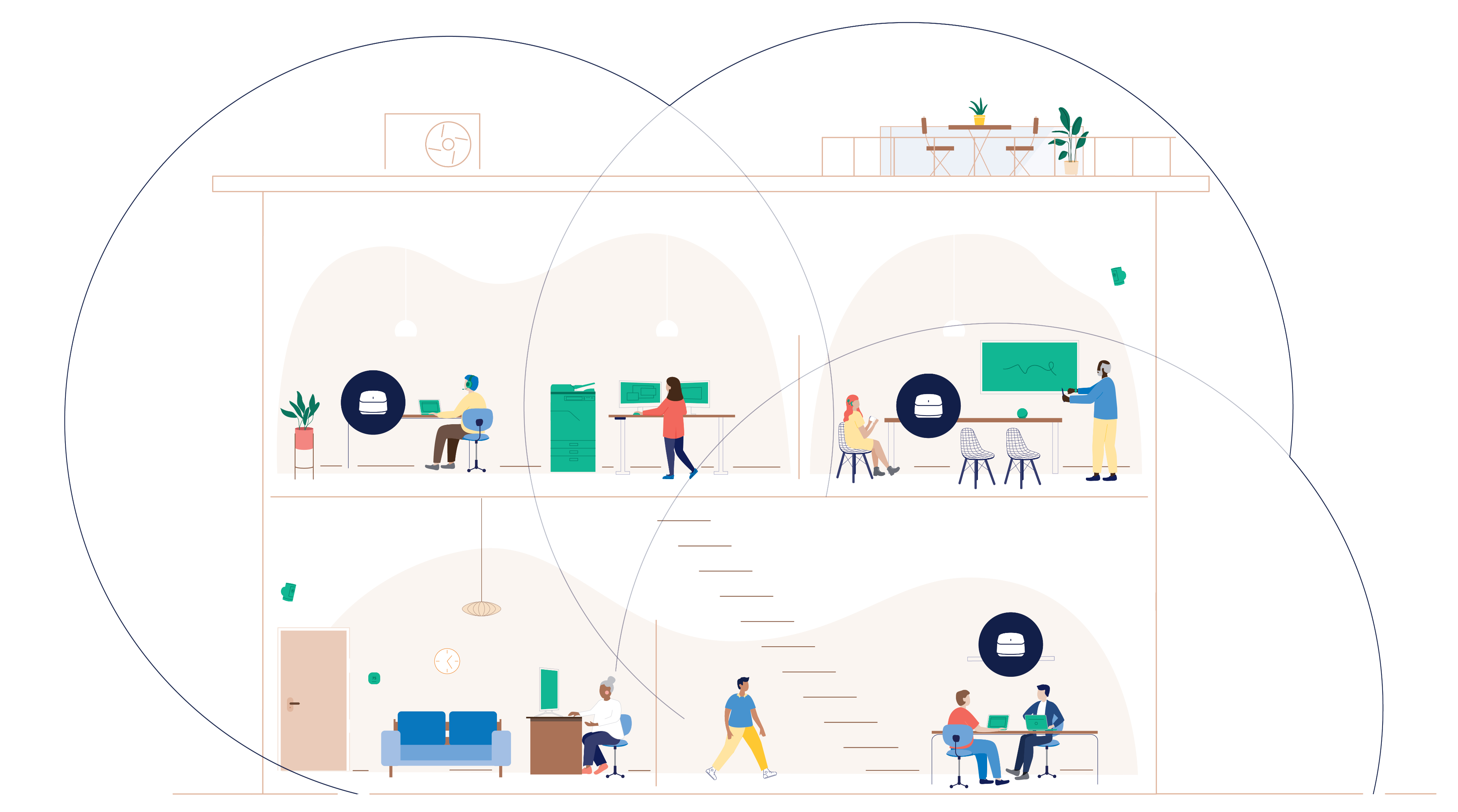With growing digital demands — from supporting ecommerce to improving the customer experience — small and medium-sized businesses need solid IT infrastructures. And that starts with having a fast, reliable, and scalable internet connection. While cable and DSL internet are adequate options, fiber internet unlocks even more options to keep businesses running smoothly today.
Fiber internet isn’t yet as widely available as cable and DSL, but providers like Bluepeak Business are developing fiber internet infrastructure to extend beyond major metropolitan areas to smaller cities and towns. The market is rapidly growing and is expected to rise from $84.5 billion to $111.97 billion between 2024 and 2028. At a macro level, trends like increased data consumption, IoT adoption, and cloud and edge computing growth are driving the expansion. But essentially, it’s the day-to-day opportunities the technology offers both consumers and businesses.
Unlike traditional internet connections, which rely on electrical signals to transmit data over coax cables or copper telephone wires, fiber internet uses thin strands of glass or plastic. The strands, also known as fiber-optic cables, transmit data as pulses of light, allowing it to travel at nearly the speed of light with minimal signal loss. This ensures it operates quickly, reliably, and securely — all necessities for today’s businesses. Here are five reasons you should explore fiber internet when it’s available for yours.
1. Lightning-Fast Speeds
Leveraging coax cables and networks — the same as those used to deliver TV — cable internet offers businesses high-speed internet connections up to 1200 Mbps (1.2 Gbps). And while you might receive the highest cable internet speeds when downloading content, uploading it can be significantly slower. However, fiber internet’s fiber-optic cables can transmit more data than thousands of copper cables, delivering up to 10,000 Mbps (10 Gbps). It offers identical upload and download speeds, so you won’t notice a difference no matter how you use it. That can make a world of difference if your business relies heavily on ingesting data or uploading content.
2. Low Latency (Less Lag time)
Latency is a term that describes the delay, or lag time, it takes data to travel. The lower the latency, the less packet loss and the smoother your online experience. Fiber internet offers extremely low latency — much lower than traditional internet connections — allowing you and your team to be more productive and collaborate seamlessly online. You won’t have to wait for videos to buffer while streaming or turn off your camera for video calls because of a poor connection. You’ll also notice faster file transfers for quick access to the digital resources you need to run your business effectively and efficiently.
3.Extraordinarily Reliable
Because cable internet uses coax cables and electrical signals to pass data, temperature fluctuations and electromagnetic signals can interfere with the connection. But fiber internet strands are highly durable, resistant to damage, and aren’t impacted by electromagnetic interference. So, they require less maintenance and are less prone to outages, reducing downtime and associated costs.
4.Unmatched Scalability
Fiber-optic cables can handle significantly more data than copper cables, reducing congestion and ensuring a smoother experience, even during peak usage times, no matter your business size. More importantly, fiber infrastructure can support increasing bandwidth demands without requiring significant network upgrades to meet your business’s growing needs.
5. A More Secure Connection
Fiber internet’s light signals make it less susceptible to data corruption, loss, or interception. Plus, its higher capacity makes it easier for your business to implement robust encryption processes and protocols. Your sensitive data and documents — and those you’re responsible for maintaining for your customers — remain more secure with fiber internet. However, you still need to take proper precautions to protect your business from cyberattacks.
Adopting Fiber Internet for Your Business
You may find that your local internet providers offer a more widely available option: a hybrid network that weaves fiber-optic cables with copper coax cables. Bluepeak Business offers both hybrid and coax-based internet — and is growing our 100% fiber internet option in several areas, with more planned.
Our customers not only get all the benefits of high-speed and fiber internet but also increased confidence that their data and voice information are secure because we build, operate, and own our fiber-optic network. When you use Bluepeak Business Internet, you get speeds up to 10 Gbps and unlimited data with no caps, so you can operate your business without worrying about limitations.
As you evaluate your options and providers in your area, be sure to find out what type of connections they offer and what services and technology solutions they use to meet your needs. For example, Bluepeak Business offers eero for Business with our fiber internet package. It gives you mesh Wi-Fi hardware paired with intelligent business software that lets you make the most of your fiber connection and keep it secure across your entire premises. And we back up our solutions with friendly local service.
No matter your business size today — or tomorrow — fiber internet gives you the speed, latency, reliability, scalability, and security you need.





